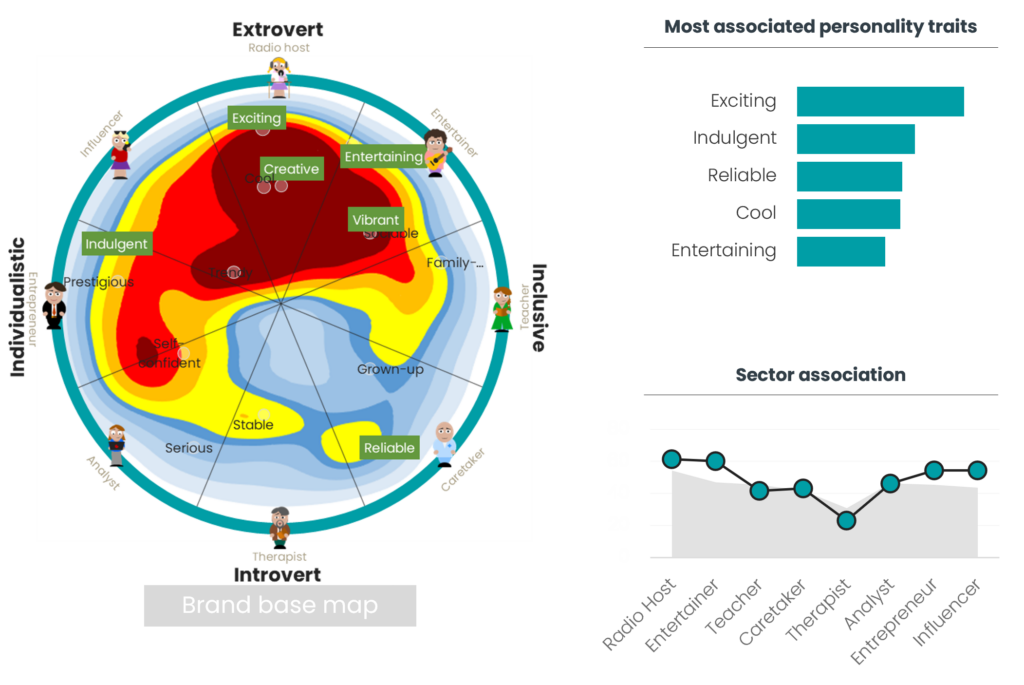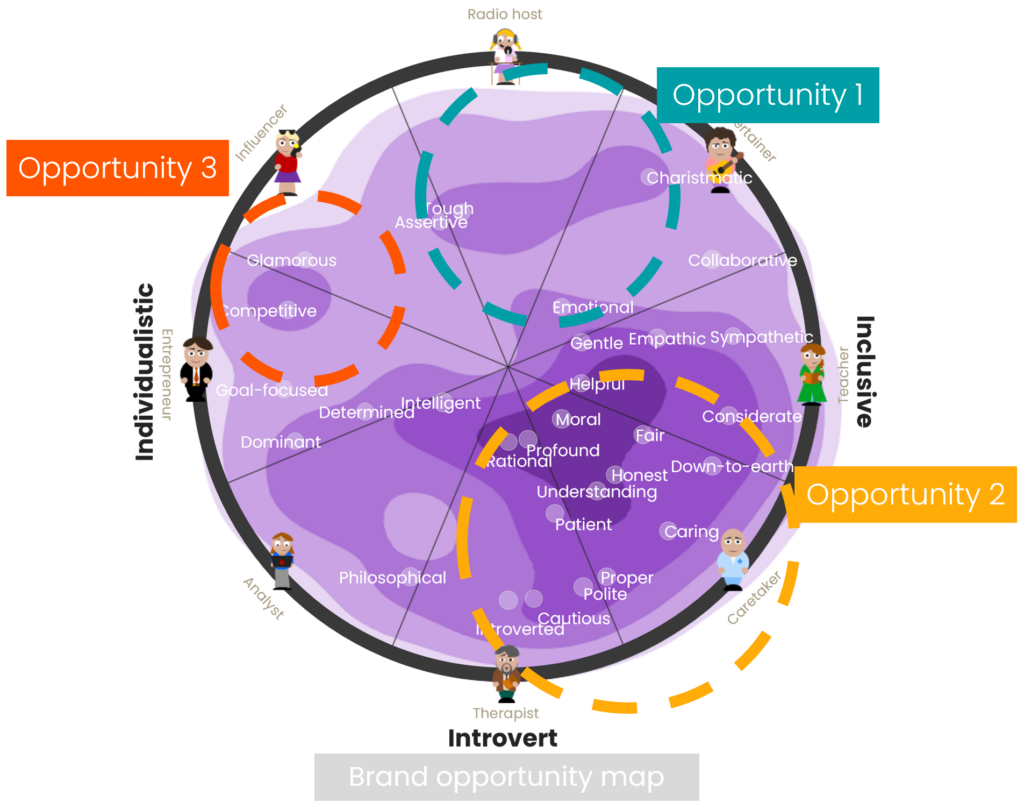Here at Nepa we’ve worked with brands to define and explore their personalities for over a decade. We’re experts on the subject, but our clients often have questions. So, we’ve spoken with the team to compile a list of the most frequently asked brand personality questions.
What is brand personality?
It is the set of human-like traits and characteristics that a brand embodies. Like individuals have unique personalities, brands should also exhibit distinct traits to help shape how they are perceived by consumers
Why is brand personality important?
A strong personality humanises a brand, making it both distinctly different and relatable. It helps to build emotional connections with consumers, and as such can help foster loyalty, enhance the company’s equity, and drive long-term success.
How do you measure brand personality?
At its core, you need to understand how customers perceive or feel about your brand. Common strategies include surveys, qualitative research like interviews and focus groups, customer feedback analysis, brand archetype analysis, social media analysis, and competitive analysis.
Here at Nepa, we conduct Brand Touch studies that measures the true emotional position of your brand, and how its position relates to the drivers within your category, using a comprehensive yet simple framework that is grounded in validated psychology methods.

How many personalities should a brand have?
Ideally a brand should have one consistent personality that aligns with its values and messaging. However, if a brand targets diverse audiences or offers multiple product lines, it may tailor specific aspects to each audience or product category. The key is to ensure that each personality remains cohesive with the overall brand identity and values.
Can brand personality change over time?
Yes, they can evolve over time to adapt to changing market dynamics or strategic shifts. If a category has become crowded, many successful brands have moved into the personality whitespaces that consumers are looking for, but not served by. However, changes in should be implemented thoughtfully to maintain consistency and avoid alienating existing customers.
How can a brand personality be communicated effectively?
Effective communication of requires consistency across all omnichannel touchpoints, including marketing materials, social media channels, customer interactions, and product experiences. Aligning internal teams and adhering to brand guidelines are the key to maintaining a cohesive personality.
What is the difference between brand personality and brand identity?
Brand personality refers to the human characteristics or traits attributed to a brand, reflecting the emotional connection consumers have with it. On the other hand, brand identity encompasses the visual and tangible elements that represent a brand, such as its logo, colours, tone of voice, and core values.
What is the difference between brand personality and brand value?
Brand personality refers to how a brand behaves, communicates, and is perceived by customers, reflecting its persona and character. Conversely, brand values are the core beliefs and principles that guide a brand’s actions, decisions, and business strategy. They represent the ethical and philosophical foundation of the brand, guiding its behaviour and interactions with stakeholders.
What are some examples of brand personalities in the real world?
Apple
Known for its innovative and sophisticated personality, Apple embodies traits like creativity, innovation, and elegance. Its products and marketing reflect a sense of exclusivity and forward-thinking, appealing to consumers who value cutting-edge technology and sleek designs.
Nike
Nike’s personality is characterised by excitement, empowerment, and athleticism. Through its bold marketing campaigns and sponsorship of top athletes, the company inspires customers to push their limits and achieve greatness, fostering a sense of motivation and determination.
Tiffany & Co.
Tiffany & Co. exudes sophistication, luxury, and elegance, making it one of the most prestigious jewellery brands in the world. Its brand personality reflects qualities like charm, romance, and timeless beauty, appealing to customers who desire elegance and refinement.
Coca-Cola
Coca-Cola’s personality is characterised by sincerity, happiness, and nostalgia. With its iconic red branding and timeless slogans, the company evokes feelings of joy, togetherness, and optimism, making it a beloved symbol of shared moments and cherished memories.
Starbucks
Starbucks’ brand personality is warm, inviting, and community oriented. Through its cosy coffee shops and personalised customer experience, Starbucks fosters a sense of belonging, connection, and comfort, making it a beloved gathering place for coffee lovers around the world.
How do you define your brand’s personality?
If you need help, then a Brand Touch study from Nepa is a great start. 120-character traits and 8 personality segments are used to visualise your position in a simple, concrete, and actionable way. By measuring your brand via human characteristics, you can understand your current positioning, and how this relates to the rest of your market. With Brand Touch 3.0, we help you unlock the future with our new market opportunity maps open whitespaces for growth that can help your brand build future success.

By aligning your brand personality with your values and messaging, you can create a cohesive and memorable identity that resonates with your target audience. With our expertise in Brand Touch studies, we can help you visualize your brand’s position in the market and unlock opportunities for future growth. Whether you’re a seasoned brand or just starting out, defining your brand personality is essential for standing out in today’s competitive landscape.


